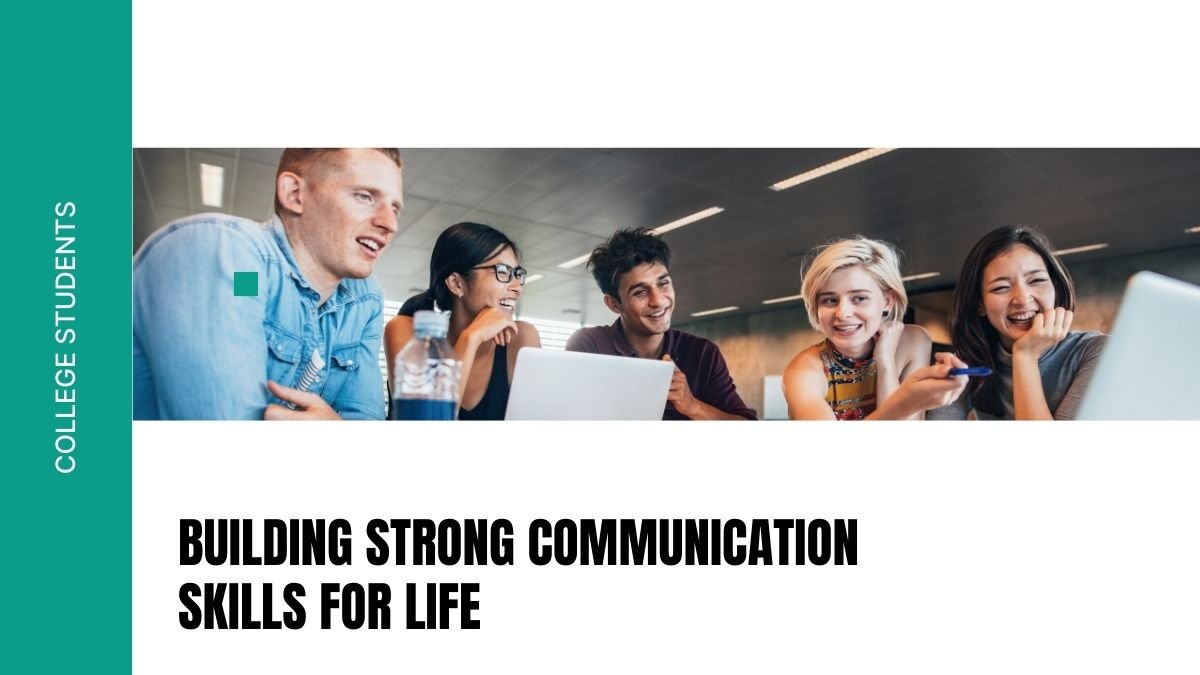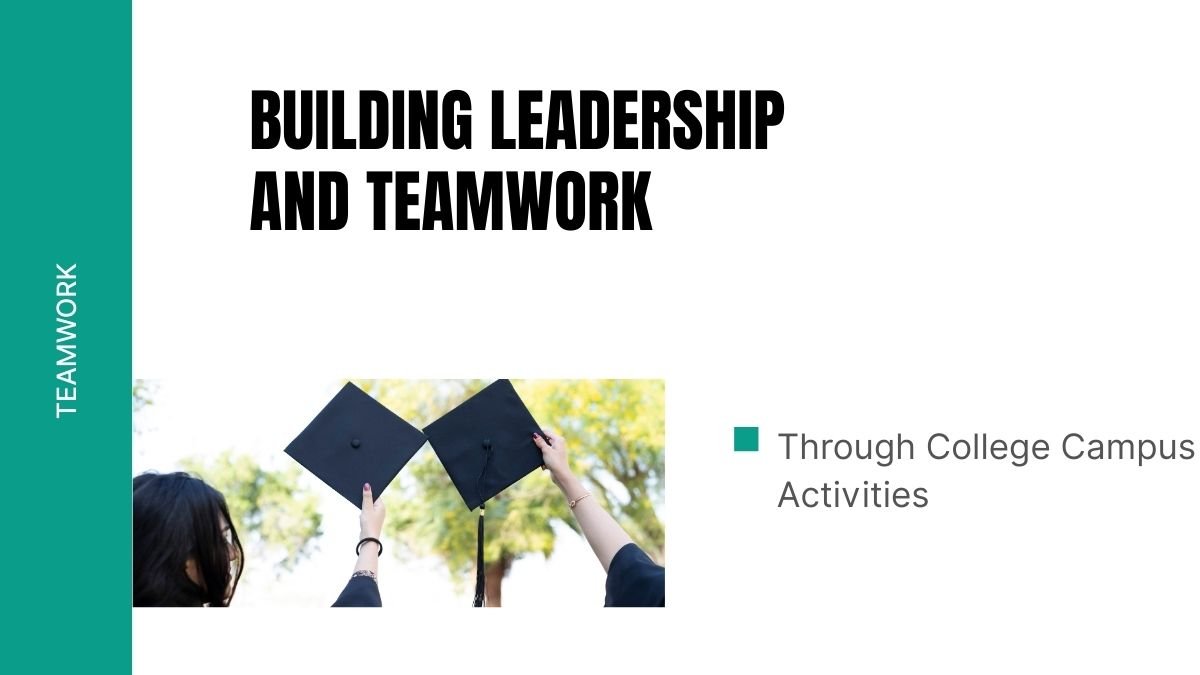College life and communication skills – why they are important and how to learn them
College life is a special phase for everyone. Here we not only learn from books, but also make friends, do projects, participate in group discussions and go through many new experiences. This is the time when our personality and skills gradually improve.
Among all these things, one skill is the most important – communication skill, that is, presenting your point in the right way and understanding others.
Many people think that communication skill means only the art of speaking. But the reality is much bigger than this. It also includes listening, understanding, writing, body language and understanding the feelings of others.
Let us understand in detail one by one about those communication skills which are important for every college student. These will not only be useful in college, but will also become the biggest weapon in your future job and life.
1. Active listening – the art of listening carefully
Good communication starts when you listen to others carefully. If you listen to the other person properly, only then will you be able to give the right answer.
How to do active listening?
- Look into the eyes of the other person while talking.
- Keep saying small words like “yes”, “good”, “ok” in between.
- When the conversation is over, repeat what they said according to your understanding.
Example
Suppose the teacher is explaining a new concept in the class or a friend in your group is telling a project idea. If you just pretend to listen and in reality your attention is somewhere else, then you will not understand anything later. But if you really listen carefully and ask questions in between, then everyone will feel that you are really interested. This creates your image of a sensible person and a team player.
2. Clear and direct communication – saying things in a simple way
Often we have good ideas, but we are unable to explain them properly. In such a situation, people do not understand the importance of what we say. Therefore, it is important that you say your point in clear and simple words.
Ways to improve
- Think in advance about what you want to say.
- Instead of talking at length, speak in points.
- Do not use too many technical words, unless it is very important.
Example
When you are giving a presentation in class, explain in your own words instead of just reading the slides. This will make the listeners feel that you understand the concept well and your words have substance.
3. Non-verbal communication – when the body also speaks
Many times people understand our feelings without saying anything. Our gestures, smile on the face, hand movements and speaking style – everything is a part of our communication.
Things to keep in mind
- Have confidence in your eyes.
- A light smile makes the atmosphere positive.
- Hand and body movements should be natural.
- Do not make mistakes like standing with your hands folded – this will make you look defensive or not interested.
Example
Suppose you have gone for an interview and on hearing the question, you lower your eyes and start moving your hands and legs. This will make the other person feel that you are nervous. On the other hand, if you answer calmly and smilingly while looking into the eyes, then the impact of your words will increase.
4. The art of writing – Writing skills
Many times in college we have to write assignments, emails and reports. In such a situation, writing neatly and without mistakes becomes very important.
Ways to improve
- Make it a habit to write a little every day.
- Understand the difference between formal and informal writing.
- Pay attention to spelling and grammar.
Example
Suppose you have to send an email to the professor. If you write “Hey bro, what’s up?” in it, then think how it will feel. It is better that you use polite and respectful language, like – “Respected Sir, I wanted to ask about the assignment deadline.”
5. Presentation skills – Putting your point in front of everyone
Many times you have to give presentations in college. If you are able to explain your point well, then people will pay attention to you.
Tips
- Use slides only for support, do not read them.
- Practice well before speaking.
- Maintain eye contact with the audience.
Example
If you have to tell the result of a group project in class, then just reading the number will not work. You will also have to tell why this result came and what it means. This will make people take your point seriously.
6. Intercultural communication – Understanding different cultures
Students come to college from different places. Everyone’s thinking, language and way of speaking is different.
What to do
- Respect the culture of others.
- Try to understand their language and style.
- Do not judge anyone quickly.
Example
If a student in your class is not comfortable in English, then help him. Maybe he will teach you something new from his culture and both of you will become good friends.
7. Conflict Resolution – The art of resolving differences
Sometimes there are differences of opinion in a group project or class discussion. At such times, it is better to talk calmly than getting angry.
Tips
- First listen to the other person carefully.
- Say your point slowly and calmly.
- The goal should be to solve the problem, not to win the debate.
Example
Suppose two people in your group are adamant on different ideas. If you speak angrily, the atmosphere will deteriorate. But if you say – “Let’s write down the advantages and disadvantages of both the ideas and then decide by voting.” huh” – then everyone will feel that you are mature.
8. Empathy and emotional intelligence
When you understand someone’s feelings, a deep bond is formed with them. This is important not only for friendship, but also for professional life.
How to adopt
- If someone is sad, listen to them carefully.
- Think by putting yourself in the other person’s place.
- Learn to understand your own feelings too.
Example
If your friend is upset for some reason and you just ignore him by saying “Leave it yaar”, then he will feel more lonely. But if you make him sit and listen to him and say – “I can understand, this must be difficult” – then he will connect with you more.
9. Digital communication – speaking correctly online
Nowadays a large part of the conversation happens on email, social media and chats. You should know how to speak correctly there too.
Things to keep in mind
- Proofread before sending any message.
- Difference between formal and informal online tone Understand.
- Always use professional language in emails.
Example
Imagine you wrote to a professor on WhatsApp – “Plz chk assignment fast.” This will not look good at all. It would be better if you write – “Sir, I have submitted my assignment. Kindly let me know if any corrections are needed.”
10. Learn to take and give feedback
Feedback is important for everyone. It helps us understand our shortcomings and gives us a chance to improve.
How to give feedback
- Give suggestions, not criticism.
- Always start with positive things.
- Clearly state the scope for improvement.
Example
If your friend gave a presentation and there were some shortcomings in it, do not directly say “It was very bad”. It would be better if you say – “Your content was good, but if there were fewer slides and you explained more yourself, it would have been better.”
Conclusion – Why communication skills are the real weapon of life
Communication skills are important not just for passing college, but for the whole life. Whether it is giving a presentation in class, doing a group project, talking to friends or giving an interview – these skills increase your confidence and make career easier.
Remember, good Becoming a communicator does not happen in a day. For this, you have to practice a little bit every day. It is important to learn from others, take feedback and constantly improve yourself.
If you adopt these skills gradually, then you will not only shine in college but will also attract everyone’s attention in professional life.








